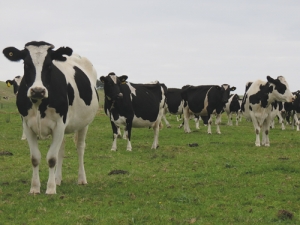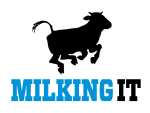The recent slowdown in Chinese demand for live dairy heifers has many NZ exporters and traders questioning if the boom period is over.
According to a new industry report by agribusiness specialist Rabobank 'Chinese dairy heifer demand – has the ship sailed?', structural changes in China's dairy industry have dampened demand for dairy heifers, with volumes and prices expected to remain well below 2014 levels over the medium term.
"Last year, we saw New Zealand's exports of dairy heifers hit near-record levels, with China accounting for nearly all of New Zealand's heifer exports," says report author and senior dairy analyst, Michael Harvey.
"However, Chinese demand has since dropped off, with trade volumes to China falling sharply throughout 2015, and prices also taking a hit – in the vicinity of 30 per cent."
Harvey says China's dairy sector is becoming increasingly self-sufficient in raising heifers, aided by improvements in fertility rates and herd management practices, reducing the need for local producers to replenish their herds through importing heifers.
Harvey says despite the subdued Chinese demand outlook, China will remain a major destination for New Zealand's dairy heifers, with potential for future spikes in demand.
Exporters and traders need to refocus
The Rabobank report says while China will continue to present significant market opportunities for dairy heifer exports, some of the structural changes taking place in its dairy market will permanently impact trade.
"We expect China to remain the cornerstone of trade, however their demand is likely to be at a lower rate than what we have witnessed in recent years," says Harvey.
"In the Chinese government's five-year plan, there are calls for transformation in the country's growth model by way of, amongst others, stepping up agricultural modernisation, so we would expect to continue to see small farmers exit the industry in place of larger operators."
Harvey says in light of this trend, volatility has increased in the dairy heifer market and there has been a downward adjustment to prices, which will see exporters and traders adjust their strategies accordingly.
"For example, we are seeing New Zealand producers retain heifers and replace older and less productive stock – although this has been primarily driven by the substantial drop in farmgate milk prices," he says.
With New Zealand exporters and traders looking to other market opportunities for dairy heifers, Harvey says it is important not to neglect China but to ensure there are the channels in place to supply alternative markets.
"New Zealand is well positioned to trade heifers with South East Asia, although trade with Indonesia, Sri Lanka, Pakistan, Malaysia and Vietnam may require adjustments to breeding and sourcing strategies, and a particular focus on sustainability and animal welfare," he says.
"But there are certainly opportunities in these markets, with dairy demand in South East Asia expected to increase by more than three billion litres between 2014 and 2020 and ongoing efforts to boost local milk supply to help meet some of this demand."


















